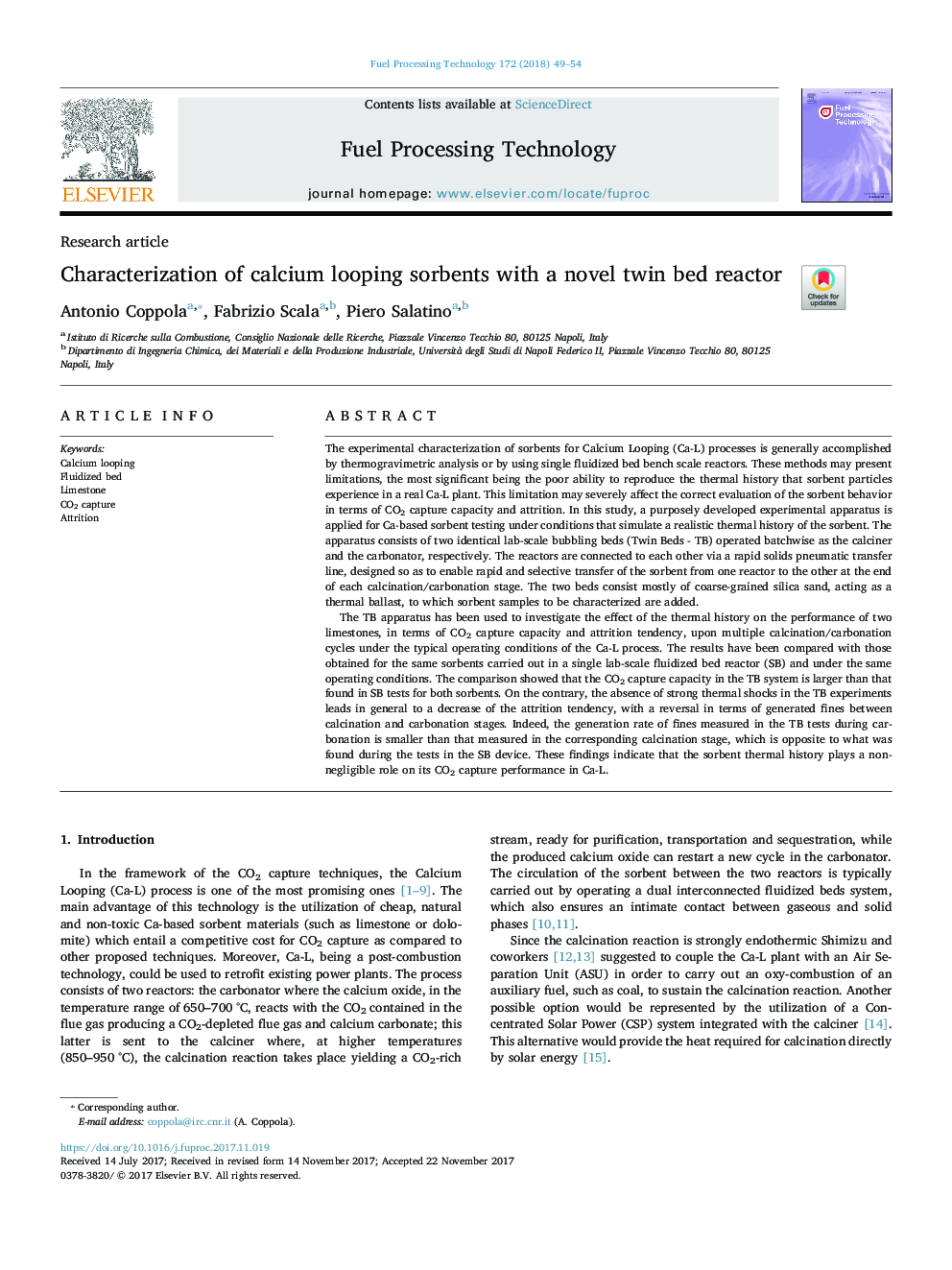| Article ID | Journal | Published Year | Pages | File Type |
|---|---|---|---|---|
| 6656464 | Fuel Processing Technology | 2018 | 6 Pages |
Abstract
The TB apparatus has been used to investigate the effect of the thermal history on the performance of two limestones, in terms of CO2 capture capacity and attrition tendency, upon multiple calcination/carbonation cycles under the typical operating conditions of the Ca-L process. The results have been compared with those obtained for the same sorbents carried out in a single lab-scale fluidized bed reactor (SB) and under the same operating conditions. The comparison showed that the CO2 capture capacity in the TB system is larger than that found in SB tests for both sorbents. On the contrary, the absence of strong thermal shocks in the TB experiments leads in general to a decrease of the attrition tendency, with a reversal in terms of generated fines between calcination and carbonation stages. Indeed, the generation rate of fines measured in the TB tests during carbonation is smaller than that measured in the corresponding calcination stage, which is opposite to what was found during the tests in the SB device. These findings indicate that the sorbent thermal history plays a non-negligible role on its CO2 capture performance in Ca-L.
Related Topics
Physical Sciences and Engineering
Chemical Engineering
Chemical Engineering (General)
Authors
Antonio Coppola, Fabrizio Scala, Piero Salatino,
